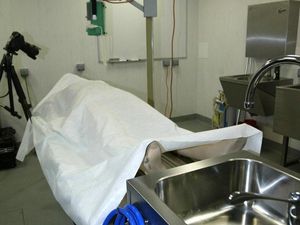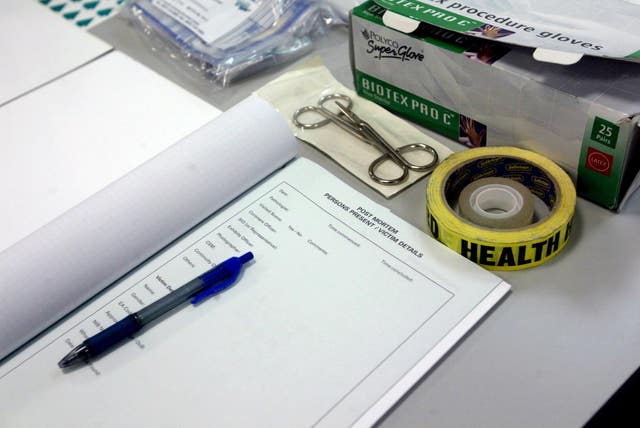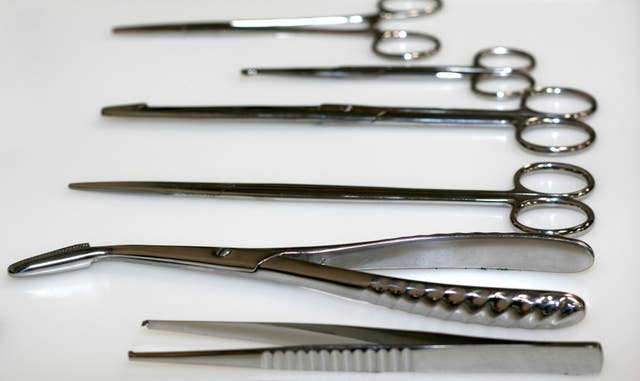Families call for answers over claims of botched post mortems
Dr Khalid Ahmed was dismissed from his post last month.

Families told a coroner they “want answers” over concerns post mortems carried out on their loved ones were botched.
A number of relatives of 26 people whose inquests are on hold told North Manchester Coroner Joanne Kearsley a public inquiry should be held over the work done by Dr Khalid Ahmed.
Dr Ahmed worked as a consultant histopathologist, an expert in disease in human tissue, for Pennine Acute NHS Trust at the Royal Oldham Hospital.
He also carried out separate private work conducting 1,351 post mortems for the north Manchester Coroner between January 3 2007 and May of last year when concerns were raised about his work by the senior Coroner for Manchester, Nigel Meadows.

The 26 inquests were then put on hold on hold as an independent expert review was ordered.
The review of a sample of 38 of Dr Ahmed’s post mortems by Professor Simon Kim Suvarna, a consultant histopathologist at Sheffield Teaching Hospitals, found some post mortem reports to be “inadequate” and an “incorrect” cause of death given.
Coroners often reach verdicts on the causes of death of people based on expert medical evidence presented to them after doctors carry out post mortems.
Tuesday’s hearing heard from families and lawyers from the NHS trust and Dr Ahmed.
Some families did not want further delay in the inquests while others asked for all the inquests to be brought under the umbrella of a public inquiry as they had “real concerns” over the post mortems undertaken by him.

Ms Kearsley said she will make a decision in the next 10 days whether or not she will refer the inquests to the Secretary of State, for consideration of whether a public inquiry should be held.
Dr Ahmed, who qualified as a doctor in 1989 in Bangalore, India, joined Pennine Acute Trust in October 2006 and in January 2007 started carrying out post mortems for the coroner.
This was private work paid for by the coroner and not overseen by his trust employers.
In a statement the trust said after they were told of the Coroner’s concerns an “in-depth internal review” into Dr Ahmed’s work for the NHS trust was carried out, which concluded in February this year.
The trust said their own “governance mechanisms” had also already highlighted concerns regarding his NHS work for the organisation and an internal inquiry was already under way.

An audit of 970 cases dealt with by Dr Ahmed was reviewed by the trust.
The trust said the “thorough and extensive investigation” of Dr Ahmed’s NHS work “provided assurance” his NHS general histopathology practice, the diagnosis of disease by microscopic analysis, was “within the range of a reasonable pathologist”.
However concerns were identified around the private post mortem work that he undertook for the coronial service.
Three cases of “significant errors” are now subject to an investigation by the General Medical Council, which is investigating.
Dr Ahmed was dismissed by the trust last month.
A subsequent police referral was made by the coroner and a police investigation is still ongoing.





